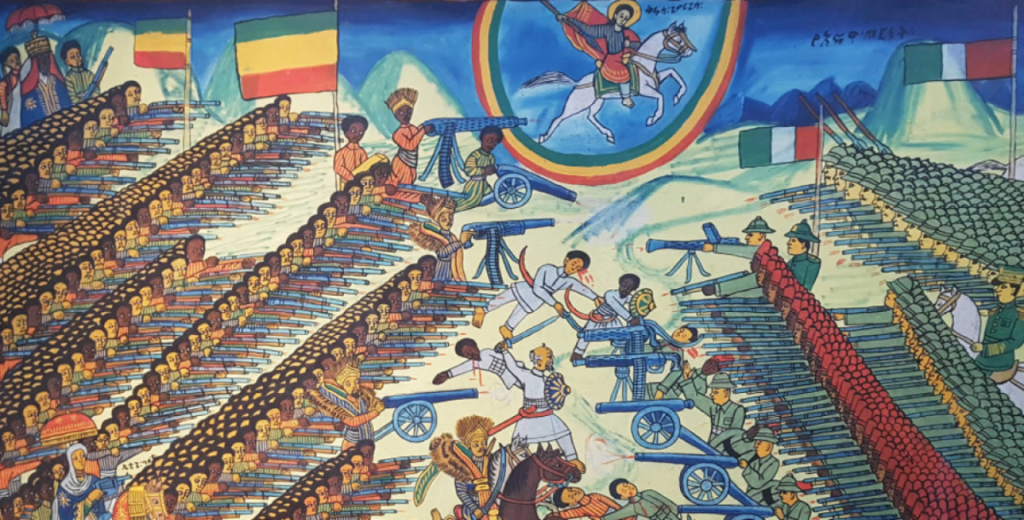While most of Africa had come under colonial rule during the so-called scramble for Africa, Ethiopia remained a sovereign nation with a formidable army and a strong monarchy.
That said, Ethiopia had looked to Italy for financial and military support, with Emperor Menelik II signing the Treaty of Wuchale in 1889, formalizing the support of Italy. It turns out that the treaty had significant wording differences between the Italian and Ethiopian versions, with the Italians interpreting the treaty as having made Ethiopia a protectorate of Italy.
This led to the First Italo-Ethiopian War in 1895, with the Italians having some initial success until Ethiopian troops counterattacked Italian positions and besieged the Italian fort of Meqele, forcing its surrender.
The decisive victory for Ethiopia came at the Battle of Adwa, a northern town in Ethiopia’s Tigray Region.
The Italian troops were advancing towards Adwa over narrow mountain tracks. The Ethiopian forces took up their position on the hills overlooking the Adwa valley in order to ambush the Italians. The Italians comprised four brigades totalling 18,000 troops, while the Ethiopians led by Emperor Menelik II comprised 80,000 soldiers armed with rifles, and 20,000 armed with spears and swords.
Heavily outnumbered and outmanoeuvred, about 7,000 Italians were killed during the battle with 3,000 taken prisoner. Ethiopian losses were estimated to be 4,000. This proved a decisive defeat for the Italians, forcing their retreat back into Eritrea
In October 1896, Italy signed the Treaty of Addis Ababa, recognizing Ethiopia as an independent state.
The battle was notable as it was the first victory by an African country over a colonial power and is seen as an inspiration for the pan-African movement that would sweep across the continent in the twentieth century and oust the colonial powers. The defeat may have also helped sow the seeds that would result in the Fascist regime of Benito Mussolini. Indeed, when Italian troops occupied Addis Ababa in May 1936, Mussolini declared “Adwa has been avenged.”
With the exception of the occupation by Benito Mussolini’s military forces between 1936 and 1941, Ethiopia is Africa’s oldest independent nation.
